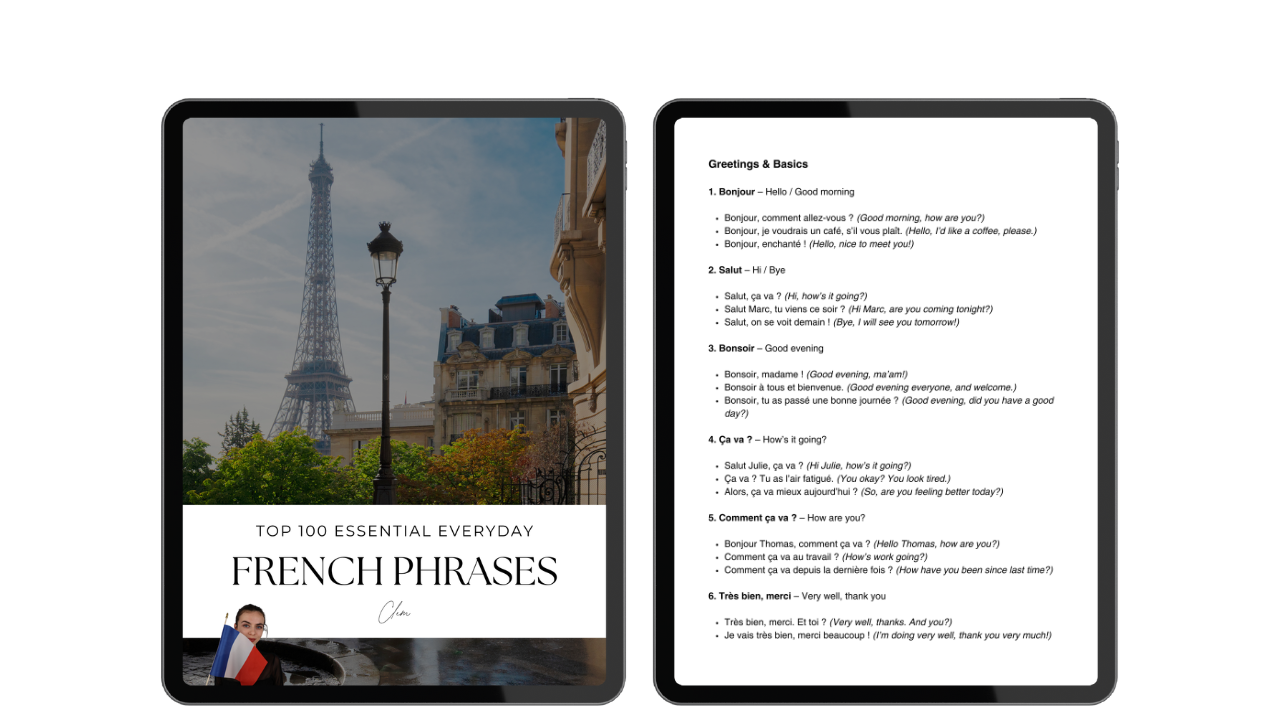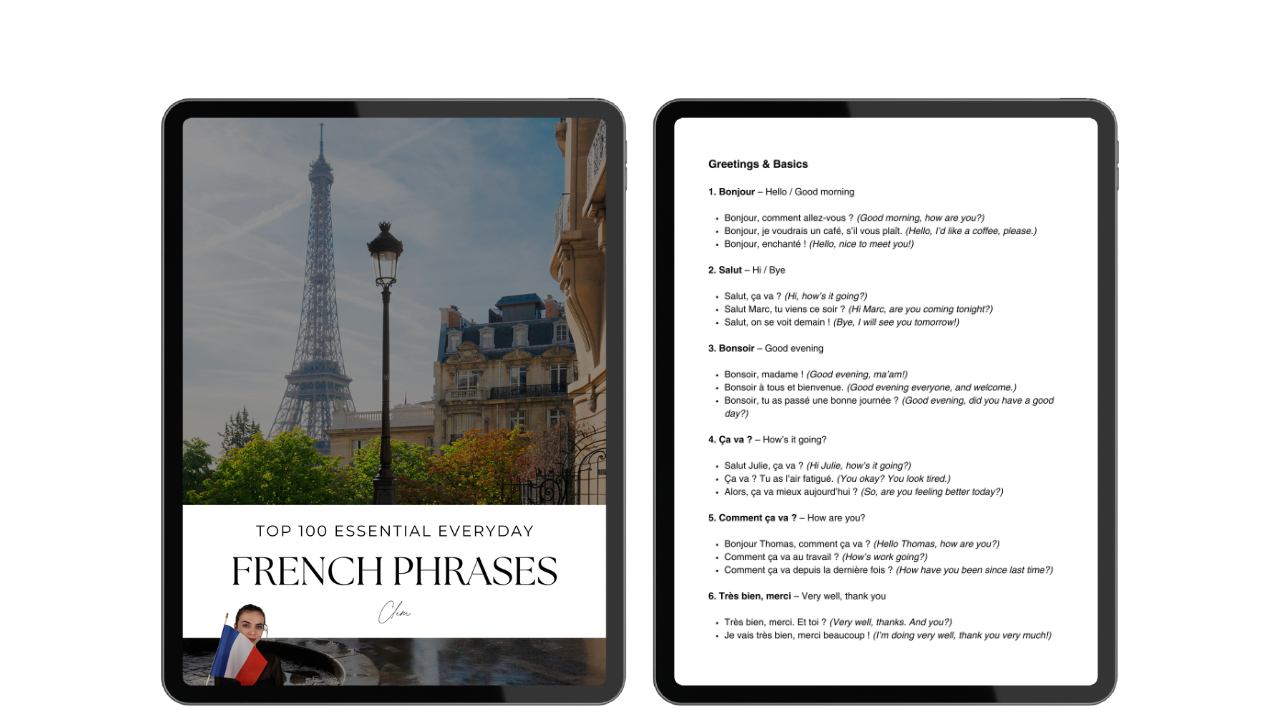
How to Respond to “Ça va ?” Without Just Saying “Ça va”
Nov 02, 2025If you’ve ever learned even a bit of French, chances are one of the first phrases you picked up was “Ça va ?” It’s everywhere. You hear it in cafés, in classrooms, at work, on the street. It’s short, simple, and friendly.
But after a while, you might start noticing something. Every time someone asks you “Ça va ?”, you just answer “Ça va.” And then they reply, “Ça va,” too. Before you know it, you’re stuck in a loop of “Ça va, ça va, ça va” — and it feels a bit… robotic.
If you’ve ever wondered how to sound more natural and expressive in French conversations, this article is for you. Let’s break down what “Ça va” really means, why it’s used so much, and how to respond to it in more interesting, genuine ways.
Why Everyone Says “Ça va”
There’s a reason “Ça va” is so popular. It’s easy, neutral, and fits almost any situation.
When a French person asks “Ça va ?”, they’re not always genuinely asking how you are. Often, it’s just a polite greeting — like “How’s it going?” or even “Hey, what’s up?” in English.
So when you reply “Ça va,” you’re simply saying, “I’m good,” or “Everything’s fine.” It’s perfectly acceptable. In fact, many native speakers also stick to this short exchange dozens of times a day.
But if you’re learning French and want to go beyond the basics, you can easily add more variety, warmth, and authenticity to your answers.
Before You Answer: Think About Context
Before we jump into alternatives, take a second to consider a few things. Context matters more than vocabulary when responding naturally in French.
1. Who’s asking you?
Are you talking to a close friend, a teacher, a client, or your boss? Your tone and level of formality should match the relationship. With friends, you can be casual or funny. With strangers or professionals, keep it polite and neutral.
2. How honest do you want to be?
Sometimes “Ça va” means “I’m fine,” but not really. Decide if you want to open up or keep things surface-level. In French culture, people usually keep it short unless they actually want to share more.
3. Are you using “tu” or “vous”?
If you’re speaking to someone formally, use vous and Et vous ? at the end of your response. With friends, it’s tu and Et toi ?
4. How’s your mood?
You can express a range of emotions just by slightly changing your response. Instead of saying “Ça va,” try adding an adjective or expression that shows how you really feel.
When You’re Feeling Great
If you’re in a good mood, don’t hide it! French has plenty of ways to sound upbeat without overdoing it.
-
Ça va très bien ! — “I’m doing really well!”
A small upgrade from plain “Ça va,” and it sounds more cheerful. -
Super ! — “Great!”
Short, enthusiastic, and natural. You’ll hear this one a lot. -
Tout va bien. — “Everything’s fine.”
It’s calm, confident, and works in any situation. -
Nickel ! — This is slang for “perfect” or “awesome.”
Totally natural with friends or coworkers, but avoid it in formal settings. -
Ça roule ! — Literally “It’s rolling,” meaning “All good!”
Very casual, often used between friends or colleagues. -
Je vais super bien. — “I’m doing super well.”
Slightly more personal, good for when someone asks sincerely.
If you’re really happy, you can even add a little flair:
“Ça va très bien, merci, j’ai passé un excellent week-end !”
(“I’m doing great, thanks, I had a wonderful weekend!”)
That one sentence immediately turns small talk into a real exchange.
When Things Are Just Okay
Sometimes you’re not feeling amazing, but you’re fine. You don’t want to sound fake, yet you don’t want to complain either. Here are some natural middle-ground responses:
-
Pas mal. — “Not bad.”
Friendly and neutral. -
Ça peut aller. — “Could be worse” or “It’s okay.”
Slightly less positive, but still polite. -
Comme ci, comme ça. — “So-so.”
Classic and clear, though slightly old-fashioned now. -
Moyen. — “Meh” or “Average.”
Casual and honest, used often in everyday French. -
Rien de spécial. — “Nothing special.”
Great for when someone’s asking about your week or life in general.
You can combine these with small details to sound more conversational:
“Pas mal, un peu fatigué, mais ça va.”
(“Not bad, a bit tired, but okay.”)
Or:
“Ça peut aller, j’attends les vacances avec impatience !”
(“I’m alright, really looking forward to the holidays!”)
When You’re Not Doing So Great
Now let’s be honest: sometimes, you’re just not okay — and that’s fine to express in French, too. Just remember that tone and setting matter. You can sound genuine without oversharing.
-
Pas terrible. — “Not great.”
A mild, honest answer that invites empathy. -
Ça va mal. — “I’m not doing well.”
Straightforward and serious, used only if you want to talk more. -
Bof. — A very French sound meaning “meh” or “not really.”
Perfect when you’re tired or unmotivated. -
Je suis fatigué(e). — “I’m tired.”
Common and totally acceptable to say. -
Je ne me sens pas très bien. — “I don’t feel very well.”
For when you’re physically or emotionally drained. -
Ça pourrait aller mieux. — “It could be better.”
Honest but not dramatic.
French people appreciate authenticity. A simple, genuine “Pas terrible” or “Je suis crevé(e)” (I’m exhausted) can feel much more human than pretending everything’s perfect.
Formal or Polite Ways to Respond
When speaking in a professional or formal context, you’ll want to sound courteous and neutral. Avoid slang like “Nickel” or “Ça roule” here.
Instead, try:
-
Je vais bien, merci. Et vous ? — “I’m well, thank you. And you?”
Polished, friendly, and always appropriate. -
Je vais très bien, merci beaucoup. Et vous ? — “I’m doing very well, thank you very much. And you?”
A little more enthusiastic, great for meetings or introductions. -
Tout va bien, merci. Et vous ? — “Everything’s fine, thank you.”
Smooth and professional. -
Pas mal, merci. Et vous ? — “Not bad, thank you.”
Honest but still polite.
If you’re speaking to someone in authority — like a teacher, client, or manager — formality and tone matter more than your exact words. Keep your delivery warm and confident.
Expressing Emotions Naturally
The secret to sounding natural in French isn’t memorizing fancy vocabulary — it’s showing emotion through small details and tone.
Try adding a little context after your main phrase:
-
“Ça va bien, je profite du beau temps.” (I’m doing well, enjoying the nice weather.)
-
“Pas mal, un peu stressé cette semaine, mais ça va.” (Not bad, a bit stressed this week, but okay.)
-
“Ça va, je suis content(e) de te voir !” (I’m fine, happy to see you!)
This approach makes your French sound spontaneous and real — like you’re truly participating in the exchange, not just answering a question.
When You Want to Sound Playful or Funny
French conversations often include a touch of humor or irony, especially between friends. Here are some playful responses that add personality:
-
Comme un lundi ! — “Like a Monday!” Perfect for when you’re tired or dragging.
-
Comme d’hab ! — Short for Comme d’habitude — “As usual.”
-
Toujours vivant ! — “Still alive!” Used jokingly when someone asks how you’re doing.
-
Ça va mieux depuis le café ! — “Better since I had coffee!”
-
Tranquille. — Slang for “Chill” or “All good.”
These small, casual answers make you sound like a real person — not a textbook example.
How to Turn “Ça va ?” Into Real Conversation
If you want to go beyond small talk, you can use your answer to start a deeper exchange. The trick is to answer briefly, then add something specific or ask a question back.
Example:
-
“Ça va bien, je reviens de vacances. Et toi, quoi de neuf ?”
(“I’m good, just got back from vacation. How about you, what’s new?”) -
“Pas mal, un peu fatigué, mais j’ai commencé un nouveau projet.”
(“Not bad, a bit tired, but I started a new project.”) -
“Ça va mieux, j’étais malade la semaine dernière.”
(“I’m better, I was sick last week.”) -
“Je vais bien, merci. Et vous, comment se passe votre journée ?”
(“I’m fine, thank you. How’s your day going?”)
Each of these examples shows interest in the other person, which keeps the conversation flowing.
When Someone Asks “Et toi ?” or “Et vous ?”
After you answer, you’ll almost always hear “Et toi ?” (and you?) or “Et vous ?” (and you?). Be ready to keep the rhythm natural.
You can mirror their tone. If they sounded upbeat, respond in kind:
“Super, merci !” or “Ça roule aussi !”
If they seemed tired or serious, match their tone:
“Je comprends, moi aussi j’ai une grosse semaine.”
That little exchange — that rhythm of listening and responding — is where your French starts to sound truly fluent.
Common Mistakes to Avoid
Even advanced learners sometimes fall into a few traps when responding to “Ça va ?”. Here’s how to avoid sounding awkward.
1. Repeating “Ça va” too mechanically
If every interaction sounds like:
“— Ça va ? — Ça va. Et toi ? — Ça va.”
you’ll seem like you’re on autopilot. Change it up from time to time.
2. Mixing up verbs
Don’t confuse aller (“to go”) with être (“to be”). You say:
“Je vais bien” — not “Je suis bien,” which sounds odd to native ears.
3. Forgetting “Et toi ?” or “Et vous ?”
French conversation is reciprocal. Not asking back feels abrupt, almost rude. Always return the question unless there’s a clear reason not to.
4. Overdoing slang
Expressions like “Nickel” or “Tranquille” sound cool with friends but awkward in formal contexts. Know your audience.
5. Translating too literally from English
Avoid saying things like “Je suis bon” (that means “I’m good” in another sense). Stick with “Je vais bien” or “Ça va.”
How to Practice and Build Confidence
If you want your French to sound more natural when replying to “Ça va ?”, here’s how to get there:
1. Listen to native speakers
Watch French YouTubers, listen to podcasts, or pay attention to how characters respond in French shows. You’ll quickly pick up rhythms and patterns.
2. Imitate what you hear
Shadowing — repeating sentences right after you hear them — helps train your ear and mouth. Try repeating “Ça roule !” or “Pas mal du tout !” naturally.
3. Write short dialogues
Create little scenarios. For example:
A friend asks, “Ça va ?”
You answer, “Ça va mieux aujourd’hui, merci ! Et toi ?”
Then practice them aloud until they feel smooth.
4. Try small variations daily
Make it a game: every day, answer “Ça va ?” a different way. One day say “Nickel,” another day “Pas mal,” then “Super bien,” and so on.
5. Focus on tone, not just words
Even the simplest “Ça va” can sound warm or cold depending on how you say it. Smile, make eye contact, and use a natural tone.
When “Ça va” Means Something Else
A quick fun fact: “Ça va” isn’t only used to ask “How are you?” In French, it can appear in many contexts with different meanings.
-
Ça va ? — How are you? / Are you okay?
-
Ça va aller. — It’s going to be okay.
-
Ça va pas ! — That’s not okay! / You’re kidding!
-
Ça va, ça va. — Alright, alright (to calm someone down).
-
Ça y est, ça va. — It’s fine now.
So learning the nuances of “Ça va” goes far beyond greetings. It’s a phrase that shifts meaning depending on tone, emotion, and situation — one of the reasons it’s so central to French.
“Ça va” is short, flexible, and everywhere — but that’s exactly why it’s worth mastering. It’s the heartbeat of French small talk.
The trick is not to avoid “Ça va,” but to make it yours. Some days, a simple “Ça va” is perfect. Other times, you might want to sound more cheerful (“Nickel !”), more real (“Pas terrible, mais ça va”), or more polite (“Je vais bien, merci. Et vous ?”).
By mixing it up, you’ll sound more authentic, more expressive, and more like yourself — just in French.
So next time someone asks, “Ça va ?”, skip the automatic response. Take a second, feel the moment, and say something that actually reflects how you are.
Your French — and your conversations — will instantly feel more alive.












